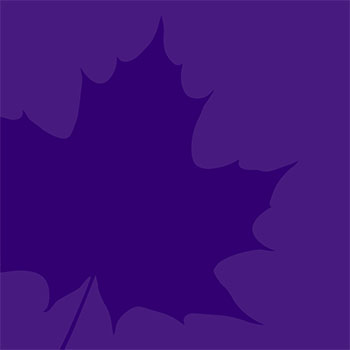We use cookies on this site to enhance your experience.
By selecting “Accept” and continuing to use this website, you consent to the use of cookies.

Choosing electives is a personal choice, based on disciplines of strength and interest and perhaps future aspirations. Your academic advisor cannot select electives for you. The following resource includes a few things to consider when you’re selecting electives in the senior years of your program.
The number of electives you can register in depends on your specific program. Check the appropriate Academic Calendar for the program that you are pursing to determine the total number of electives for your program. Uncertain of the appropriate calendar for the degree that you are pursuing? Check MyDegree in the "Major" block and note the "Catalog year".
Most courses are one term in length and earn 0.5 credit (there are some Laurier exceptions that are 0.25 credit or 1.0 credit).
All programs have a minimum number of senior credits that are required for the degree. Therefore, there is a maximum number of 100-level courses, including both required and elective, that can be completed within the 20.0 credit minimum for your program. Check the appropriate Academic Calendar for the program that you are pursing to clarify the maximum number of 100-level courses that you can complete as this may influence the year level of your elective choices.
Most Faculty of Science programs include language for “breadth requirements” for electives: Electives must include at least X credits from a discipline outside of those offered by the Faculty of Science.
You may consider working towards a minor / option, but you are not required to do so. Interest in a minor / option may assist you in picking elective courses.
You must complete an override form from the Department of Languages and Literatures to register in your first French course at Laurier.
Popular electives can reach capacity quickly. Do not become discouraged!
You have until September 17, 2025 to register for Fall Term 2025 courses and January 16, 2026 for Winter Term 2026 courses.
We have compiled a list of some senior electives offered through other faculties whose content may be of interest to a Faculty of Science student. You must check the course description for any pre-requisites.
Courses based on STEM in social, cultural, philosophical and historical context
|
Course Code |
Course Title |
Term |
Mode |
|
CS213 |
Technology and Society |
Winter |
In-Person |
|
DH201 |
Introduction to Generative AI |
Fall |
In-Person |
|
EN241 |
Advanced Academic Writing |
Fall, Winter |
Virtual Asynchronous |
|
GS354 |
Tech and Global Society |
Fall |
In-Person |
|
HP201 |
Ethics & Philosophy of Science |
Winter |
In-Person |
|
PP204 |
Formal Logic |
Fall |
In-Person |
|
PP225 |
Theories of Knowledge |
Winter |
In-Person |
|
PP240H |
Ethics and AI |
Fall, Winter |
In-Person (Fall), Virtual Asynchronous (Winter) |
|
RE203 |
Science and Religion |
Winter |
In-Person |
Courses based on human health, community and lifespan
|
Course Code |
Course Title |
Term |
Mode |
|
AN224 |
Anthropology of the Lifecourse |
Fall |
In-Person |
|
CC210 |
Psychology of Crime |
Fall |
Virtual Asynchronous |
|
CC312/HS312 |
Mental Health and Justice |
Winter |
Virtual Asynchronous, In-Person |
|
GS221 |
The Cosmopolitan Village? |
Fall |
In-Person |
|
HI280 |
A History of Madness |
Fall |
In-Person |
|
HS201 |
Canadian Healthcare Systems |
Winter |
Virtual Asynchronous |
|
HS208 |
Autism: Advocacy, Policy and Practice |
Winter |
Virtual Asynchronous |
|
HS220 |
Epidemiology and Public Health |
Fall |
Virtual Asynchronous |
|
HS227 |
Aging: Realities and Myths |
Fall |
Virtual Asynchronous |
|
HS303 |
Environment and Health |
Fall, Winter |
Virtual Asynchronous |
|
HS322 |
Health Policy |
Fall |
Virtual Asynchronous |
|
PP217 |
Medical Ethics |
Fall, Winter |
Virtual Asynchronous (F), In-Person (W) |
|
SY215 |
Health and Illness |
Fall, Winter |
Virtual Asynchronous (F), In-Person (W) |
|
SY216 |
Aging in Social Context |
Fall, Winter |
In-Person |
|
SY232 |
Sociology of Mental Illness |
Winter |
In-Person |
Courses based on environment, biosphere and climate
|
Course Code |
Course Title |
Term |
Mode |
|
AN239 |
Climate Change in Anthropocene |
Winter |
In-Person |
|
GS351 |
Nature, Culture & Development |
Winter |
In-Person |
|
GS358 |
Insects and Global Studies |
Winter |
In-Person |
|
GS361 |
Disasters, Vulnerability, Resilience |
Winter |
In-Person |
|
HS303 |
Environment and Health |
Fall, Winter |
Virtual Asynchronous |
|
PP224 |
Philosophy and the Environment |
Fall |
In-Person |